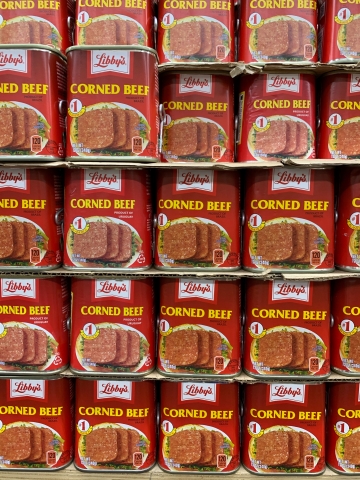Is Our Food Killing Us? We Need to Examine Our Diet
Is Our Food Killing Us? Problems we all face when it comes to our Food:
In today’s frenetic world, our meals often consist of pre-packaged, processed goods, fast food, and high sugar snacks. While these foods might provide momentary pleasure and convenience, the question arises: Are these foods actually harming us? Is our food killing us?
One solution is available here.
Quality beef is an answer. The idea that our food might slowly deteriorate our health is not unfounded. Studies increasingly link certain types of food, particularly those high in processed sugars, unhealthy fats, and artificial additives, to various health issues, including obesity, diabetes, heart disease, and even certain types of cancer.
Processed Foods and Health Risks
Processed food, a staple in many modern diets, often contains high sodium, sugar, and unhealthy fats. Regularly consuming these food items has been associated with an increased risk of developing chronic diseases like heart disease, stroke, and diabetes. For instance, a study published in the Journal of the American Medical Association in 2019 found that a 10% increase in the consumption of ultra-processed foods was linked with a 14% higher risk of all-cause mortality.
Pesticides and Endocrine Disruptors
Pesticides, widely used in conventional agriculture, can leave residue on our food. While regulatory bodies establish limits for these residues, some research suggests that long-term exposure to even low levels of these chemicals can be harmful. Certain pesticides are endocrine disruptors, meaning they interfere with our hormonal systems, potentially leading to developmental, reproductive, neurological, and immune effects.
Antibiotics and Antimicrobial Resistance
The use of antibiotics in livestock is another concern. Farmers often administer these drugs to healthy animals to prevent disease or promote growth. However, this practice can lead to antimicrobial resistance, a severe global health threat. When we consume these foods, we risk ingesting antibiotic-resistant bacteria, which can complicate treating human illnesses.
The Impact of Food on Mental Health
Emerging research also points to a connection between diet and mental health. High-sugar diets, for instance, have been linked with increased symptoms of depression and anxiety. On the other hand, diets rich in fruits, vegetables, whole grains, and lean protein—often referred to as a “Mediterranean”diet”—have been associated with reduced symptoms of depression and better cognitive function.
Conclusion: Is Our Food Killing Us? A Call for Healthier Food Systems
So, is our food killing us? The answer is complex. While it’s clear that certain types of food can contribute to poor health outcomes, it’s also important to note that food is not inherently harmful. Instead, the systems we’ve built around food—the reliance on chemical-intensive agriculture, the mass production of highly processed foods, and the overuse of antibiotics in livestock—pose significant risks.
The good news is that we have the power to change these systems. By supporting organic and sustainable farming practices, opting for whole, unprocessed foods, and advocating for responsible antibiotic use in agriculture, we can build a food system that promotes, rather than compromises, our health. It’s a long journey ahead, but every small change brings us one step closer to a healthier future. Ultimately, it’s not just about what we eat but how we grow, produce, and choose our food.
Our beef is verified as one of the most nutrient-dense in the world, making it the perfect choice for health-conscious consumers. Visit our website to order now!



